‘Out of hand’ haze over Bangkok a symptom of invisible killer pollution in city every day
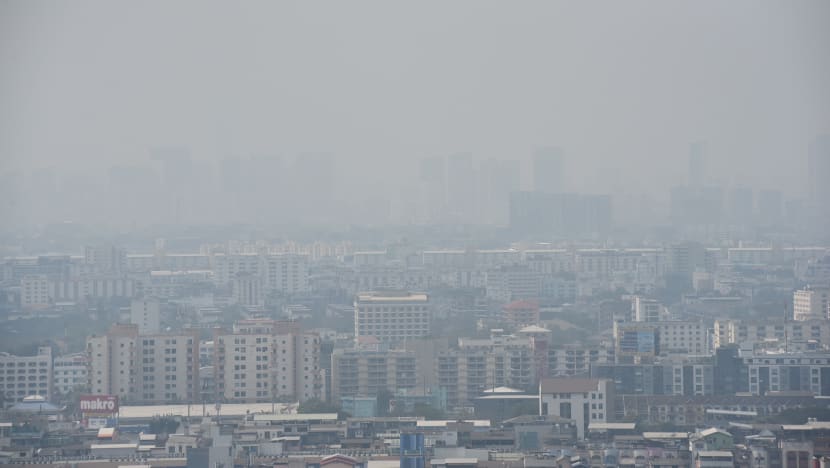
Bangkok has been covered in a thick haze over recent weeks.
BANGKOK: Khemmaporn Kaewpong, a wholesale mask seller, can hardly keep up with demand for his products these days.
As a thick grey grime hangs over Bangkok’s skyline, Khemmaporn has moved his business from an online marketplace to the streets, as his fellow city residents scramble for clean air.
Earlier this week, he said he sold a box of 400 N95 masks in less than an hour, each one fetching THB100 (US$3.15). As air pollution levels have soared, stocks of masks online and in pharmacies have depleted quickly.
Perched next to a cardboard box full of new supplies at a skytrain station in the busy business district of the Thai capital, the 41-year-old laments the decline of Bangkok’s air quality.
“It’s become worse. It’s clearly different from previous years,” he said. “In the past two weeks, I can feel that I have a sore throat. I can physically feel the pollution and know that this is abnormal.”
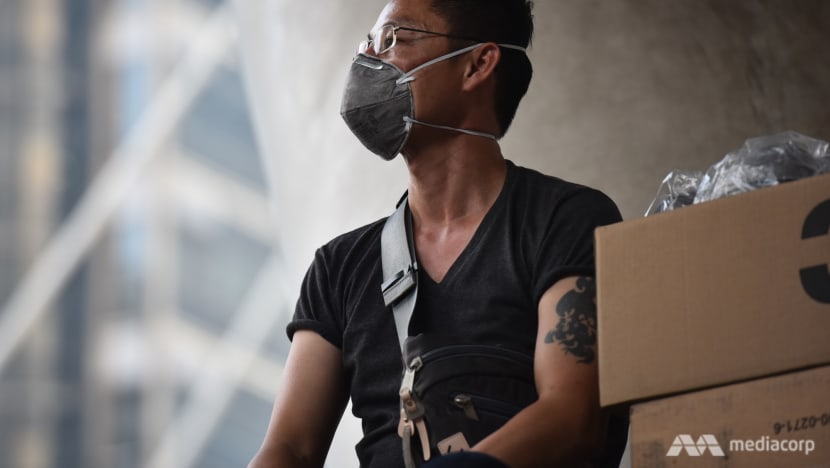
Bangkok has been gripped by a prolonged, suffocating period of dire air pollution over recent weeks. Seasonal atmospheric conditions, unfavourable winds and the city’s significant self-generated fumes have formed a toxic combination.
Crop burning outside Bangkok and in neighbouring countries - Cambodia, Laos and Myanmar - is partly to blame. A weather phenomenon called thermal inversion is causing the pollution to be trapped close to ground level and prevented from dispersing.
“The low pressure comes from China and basically the air mass is not moving. The air mass is stagnant and it traps everything. Second, there’s no rainfall,” said Prof Siwatt Pongpiachan, director of NIDA Center for Research and Development of Disaster Prevention and Management.
READ: Indonesia battles to clean up rivers
Bangkok typically experiences annual events similar to this year, where meteorological conditions conspire to prolong pollution.
“You cannot control the weather,” said Dr Supat Wangwongwatana, the former director general of Thailand’s Pollution Control Department. “The trends of air quality in Bangkok actually are improving overall over the year. Pollution is declining. It’s just when you look at the short term peaks that is due to the meteorological conditions.”
But where countries like China take preemptive measures like closing power plants and reducing vehicles on the roads during high-risk months of the years, Thailand continues to react to the problem, prompting alarm among residents every year.
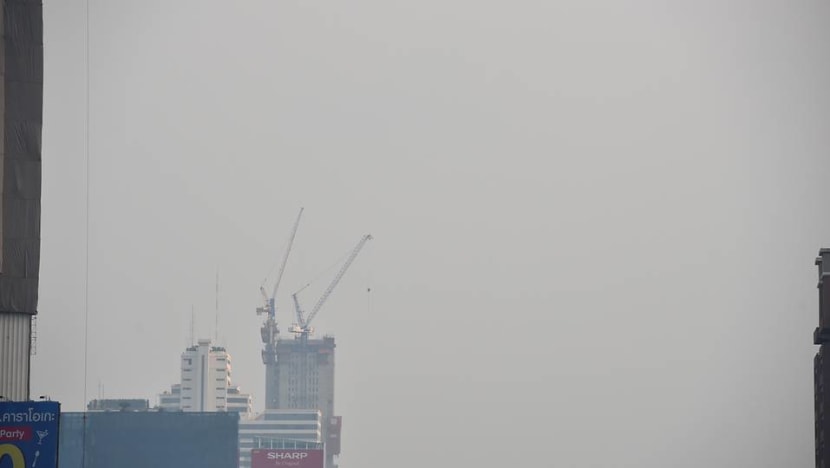
The Thai government was swift in its response to the situation this year, but only implemented localised short-term solutions, like spraying water on roads and attempting cloud seeding to induce rain.
With an election looming, Prof Siwatt believes the government lacks the will to enforce stricter measures, such as restrictions on private car usage, which could prove unpopular with voters.
“It’s purely politics. They’re trying to do things that have short-term solutions and that’s why you’re seeing the spraying of water on the roads, like a Songkran festival, happen very quickly,” he said.
On Monday, an emergency government meeting to consider declaring Bangkok a 'pollution control zone' failed to result in definitive action. Doing so would have induced multiple government agencies to take steps to tackle the problem.
Tara Buakamsri, the country director for Greenpeace, said it is a sign the government is refusing to acknowledge the crisis that has unfolded again, with residents only being encouraged to wear face masks and use public transport.
“We see year after year, up to now, the government is still doing business as usual even though they say there is bad air in Bangkok,” he said.
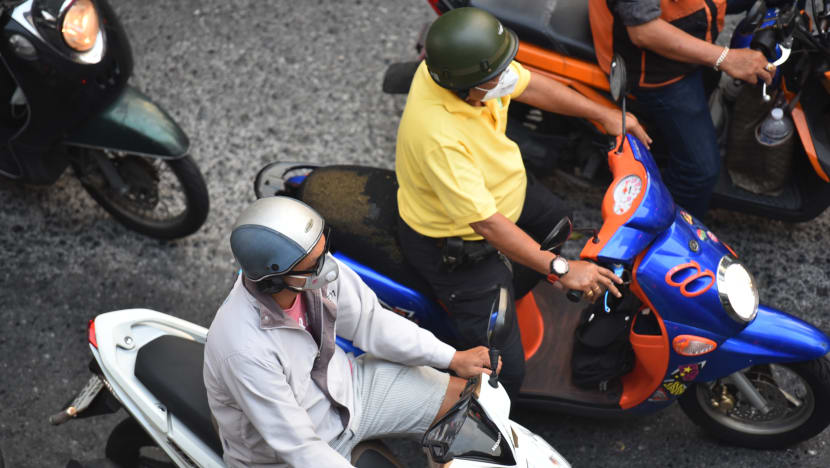
“At the end of the day, the government is not taking a drastic action to look at immediate-term and long-term management of air pollution in Bangkok. The government refuses to accept that this is a crisis for people in Bangkok.”
Dr Supat, however, argued the government is far more alert to the problem this year than in the past. Citizens’ easy access to information about air quality levels through reliable mobile applications, for example, has raised awareness and triggered individuals to take remedial action themselves.
In addition, he said the government has been gradually rolling out measures to reduce emissions, like improving fuel quality and strengthening emission standards.
READ: Thailand to hold first election since coup
But he added that more visionary thinking needs to be done to change behaviours, principally to reduce the number of cars on Bangkok roads. Nearly one million new vehicles were registered in Bangkok in 2018 alone, taking the city’s number to more than 10 million in total.
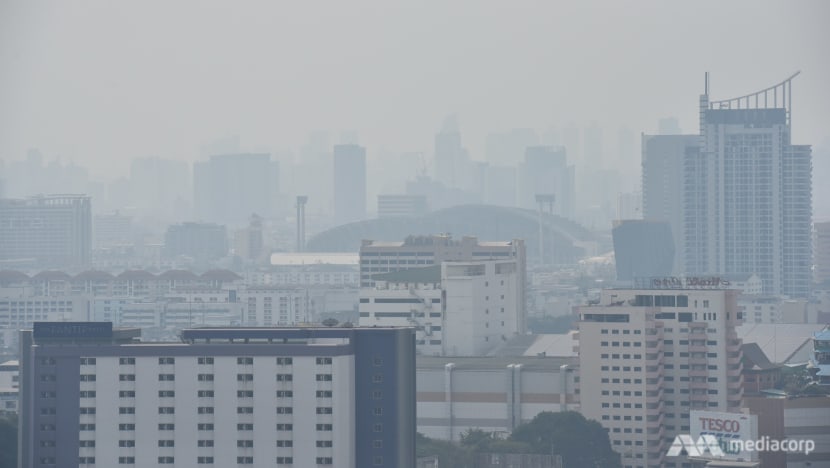
In Bangkok, about 70 per cent of the dangerous PM2.5 emissions, which can penetrate the lungs and enter the bloodstream, are generated by vehicles. The risks are serious: the World Health Organisation asserts that one-third of the world’s deaths from lung cancer, heart disease and stroke are the result of breathing dirty air.
More than 25,000 deaths were attributed to PM2.5 exposure in Thailand in 2016, according to a State of Global Air report.
“Congestion makes it worse. You have to prepare people and have good public transport. But Bangkok, can you imagine? We don’t have good infrastructure,” Dr Supat said.
“If you ask people to leave their car right now during this episode, what do you want them to do? Takes buses or take trains? It won’t happen.”
READ: In China, unhappiness tracks poor air quality
Even when the thick and highly-visual haze hanging over Bangkok eventually moves on, the risks facing residents, namely from fine PM2.5 particles caused by high pressure combustion, from factories and vehicles, will remain.
In fact, the levels of PM2.5 emissions during the pollution-heavy months are very similar to the summer months and wet season when skies are clearer. But during those times, favourable winds tend to take care of the issue.
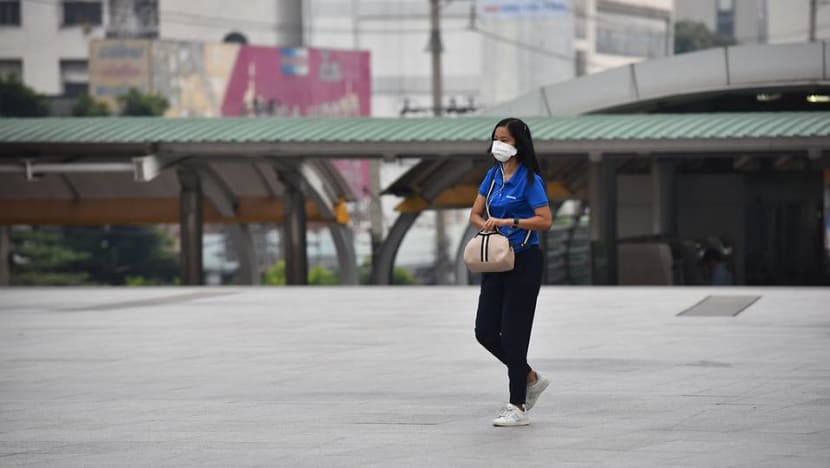
Bangkok is “lucky” most of the time, Prof Siwatt said, but it should not be cause for ongoing complacency.
“People just believe in what they see. PM2.5, we have been experiencing it for more than 10 years. It’s just not been happening these past three months,” he said.
“Now, people are scared because they can see the air, that the visibility is so poor. They say, ‘I can’t breathe’. But it’s a silent killer. It comes secretly.”
The acute health effects are already being felt. At least three major schools in Bangkok announced they would close for the rest of the the week in response to an alarming number of students falling ill in recent days.
Laura Tanaka, an expatriate worker from Canada, ensures her children wear N95 masks to school, but is constantly worried about their welfare living in Bangkok.
“As a mother, you have to consider the long-term impact on your child's health. Some trade offs are expected living in a big city, but this has gotten well out of hand,” she said.
“The air quality is becoming a real deciding factor whether to stay longer or not.”












